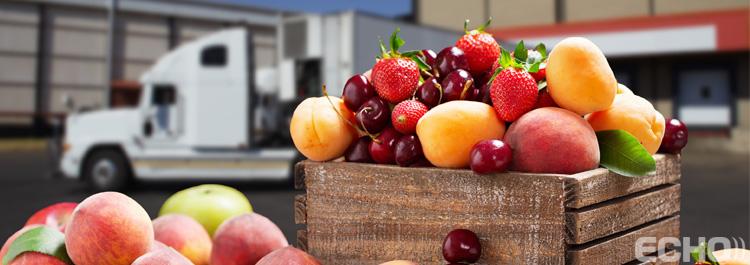Springtime means one thing for supply chains: it’s produce season! One of the most important times of year in our industry, produce season is when perishable fruits and vegetables are harvested and shipped to major distributors across the country from southern and western growers in areas such as California, Arizona, Texas, and Mexico.
Lasting from spring through the end of summer, historically the transportation industry has seen challenges to capacity during produce season due to a significant demand for trucks to haul high volumes of crops. Higher demand and lower capacity typically translate to an increase in rates for shippers across the country, particularly for those with refrigerated capabilities in harvest areas.
However, this produce season is shaping up to be different.
Produce Season This Year
In previous years, rates have risen during produce season, fluctuating by demand. For example, in the aftermath of the pandemic, produce season saw a 34.1% year-over-year (YOY) increase in reefer spot rates from March 2021 compared to March 2020, according to DAT reporting. As businesses reopened and restaurants saw more in-person dining, a significantly higher demand would be a reasonable assumption.
This year, now that the market has had time to bounce back, DAT reported a more than 20% YOY decrease in reefer spot rates from March 2023 compared to March 2022. Additionally, rates continue to drop for other modes, coinciding with a YOY decrease in fuel prices by 17.5%.
Challenges to capacity are nothing new. Domestic and international shippers continue to experience disruption due to driver shortages as carriers struggle to hire and retain drivers. Furthermore, we’ve seen volume handling difficulties due to trailer shortages. In our current market, we expect minimal impact in relation to transportation rates due to a lower demand brought on by a weak outlook for this year’s produce season.
However, the future looks optimistic. Lower rates could see supply chains seeking to take advantage of more affordable transportation options, yet poor produce expectations will likely keep demand low. While we may see occasional capacity disruptions in certain produce markets, produce season is shaping up to navigate demand fluctuations and driver and equipment shortages smoothly.
The supply chain industry is constantly moving and improving. We at Echo Global Logistics are continually looking for ways to innovate our market and simplify transportation for our shipper and carrier partners. Through uncertain times, maintaining trustworthy relationships and having partners to depend on is as important as ever.
Tips to Prepare for Produce Season
Through all the uncertainty, planning and staying informed will make it much easier to navigate challenges as they arise. Fostering preparedness for all of your specialized transportation needs will help you deal with any scenario this busy season may throw at you. Here’s a few places to start:
- Rely on Echo’s team of experts to help you prepare a strategy for dealing with the fluctuating freight market
- Look to professional providers such as Roadtex, an Echo company, for rapid, dependable, service for all of your temperature-controlled needs
- Adjust your lead time for truck sourcing
- Ship freight early and include flexible delivery dates
- Explore alternative shipping solutions by way of Echo’s multimodal options
Echo is here to help you overcome challenges to the freight industry all year round, but particularly when it comes to busy times like produce season. Spend more time doing what’s important, focusing on your business, and let us handle your unique requirements and strategize for how to best navigate industry obstacles this produce season.
Contact our experts today at 800-354-7993, info@echo.com, or request a quote for a shipment.
Informational



